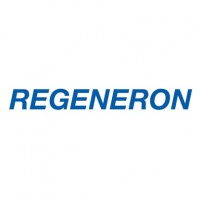Regeneron (REGN) Announces Phase 3 of Dupixent Met Primary and Secondary Endpoints

Get Alerts REGN Hot Sheet
Join SI Premium – FREE
Regeneron (NASDAQ: REGN) announces a second Phase 3 trial evaluating Dupixent® (dupilumab) in adults with uncontrolled prurigo nodularis, a chronic type 2 inflammatory skin disease, met its primary and key secondary endpoints, showing it significantly reduced itch and skin lesions compared to placebo at 24 weeks in this investigational setting. The data confirm the positive results that were previously reported from the Phase 3 PRIME2 trial and will be submitted to regulatory authorities around the world starting in the first half of this year. The impact of prurigo nodularis on quality of life is one of the highest among inflammatory skin diseases due to the extreme itch.
“These results strengthen our understanding of the underlying biology of prurigo nodularis and are encouraging as we seek to help patients severely impacted by symptoms like unbearable itch, skin lesions, stinging and burning,” says Naimish Patel, M.D, Head of Global Development, Immunology and Inflammation at Sanofi. “We are committed to researching the science behind type 2 inflammation to advance and shift perceptions in a number of inflammatory skin diseases that are not well-understood. The decision to accelerate directly into a Phase 3 clinical trial for prurigo nodularis was driven by our conviction that type 2 inflammation is a key driver of this highly pruritic disease and underscores our commitment to quickly bring novel treatments to patients who are in urgent need of new options.”
People with prurigo nodularis can experience intense, persistent itch, with thick skin lesions (called nodules) that can cover most of the body. It is often described as painful with burning, stinging and tingling of the skin. The disease can also negatively affect mental health, activities of daily living and social interactions. High-potency topical steroids are commonly prescribed but are associated with safety risks if used long-term. There are approximately 75,000 people in the U.S. who are unable to control their disease with topical steroids and otherwise do not have an approved treatment option.
“Prurigo nodularis is a highly burdensome disease involving dozens, if not hundreds of incessantly itchy and burning skin lesions, and the potential for complications such as skin infections,” said George D. Yancopoulos, M.D., Ph.D., President and Chief Scientific Officer at Regeneron. “The results of this trial once again show that Dupixent is able to significantly address the hallmark symptoms of this disease while maintaining a consistent safety profile, including a numerically lower rate of skin infections. We are encouraged by the progress of our extensive Dupixent development program that continually reinforces IL-4 and IL-13 as key drivers of the type 2 inflammation underlying a number of diseases, including dermatological diseases such as prurigo nodularis and atopic dermatitis, respiratory diseases such as asthma and CRSwNP, and gastrointestinal diseases such as eosinophilic esophagitis.”
In the Phase 3 PRIME trial, topline results comparing Dupixent (n=75) to placebo (n=76) showed at week 24:
- More than three times as many Dupixent patients experienced a clinically meaningful reduction in itch from baseline, the primary endpoint: 60% of Dupixent patients compared to 18% of placebo patients (p <0.0001).
- Nearly three times as many Dupixent patients achieved clear or almost clear skin, a secondary endpoint: 48% of Dupixent patients compared to 18% of placebo patients (p= 0.0004).
- Dupixent patients experienced significantly greater improvements in measures of overall health-related quality of life, skin pain, and symptoms of anxiety and depression.
The safety results of the trial were consistent what was observed in PRIME2 and were also generally consistent with the known safety profile of Dupixent in its approved indications. For the 24-week treatment period, overall rates of treatment-emergent adverse events were 71% for Dupixent and 63% for placebo. Adverse events most commonly observed with Dupixent included nasopharyngitis (5% Dupixent, 4% placebo) and headache (5% Dupixent, 5% placebo). Additionally, 0% of Dupixent patients and 4% of placebo patients discontinued treatment due to adverse events prior to week 24. Consistent with published literature for the atopic dermatitis trials, numerically lower rates of skin infections were seen with Dupixent in this trial (4% Dupixent, 9% placebo).
Detailed results from this trial will be presented at an upcoming medical congress. The potential use of Dupixent in prurigo nodularis is currently under clinical development and the safety and efficacy have not been fully evaluated by any regulatory authority.
Serious News for Serious Traders! Try StreetInsider.com Premium Free!
You May Also Be Interested In
- Regeneron Pharma (REGN) PT Raised to $1,030 at TD Cowen
- HII (HII) Delivers Virginia-Class Submarine New Jersey (SSN 796) to U.S. Navy
- Mainz Biomed (MYNZ) Reports Positive Topline Results from Pooled Study Evaluating Novel mRNA Biomarkers and Proprietary AI Algorithm
Create E-mail Alert Related Categories
Corporate News, FDA, Hot FDA NewsRelated Entities
Twitter, Earnings, FDASign up for StreetInsider Free!
Receive full access to all new and archived articles, unlimited portfolio tracking, e-mail alerts, custom newswires and RSS feeds - and more!



 Tweet
Tweet Share
Share Down)
Down)